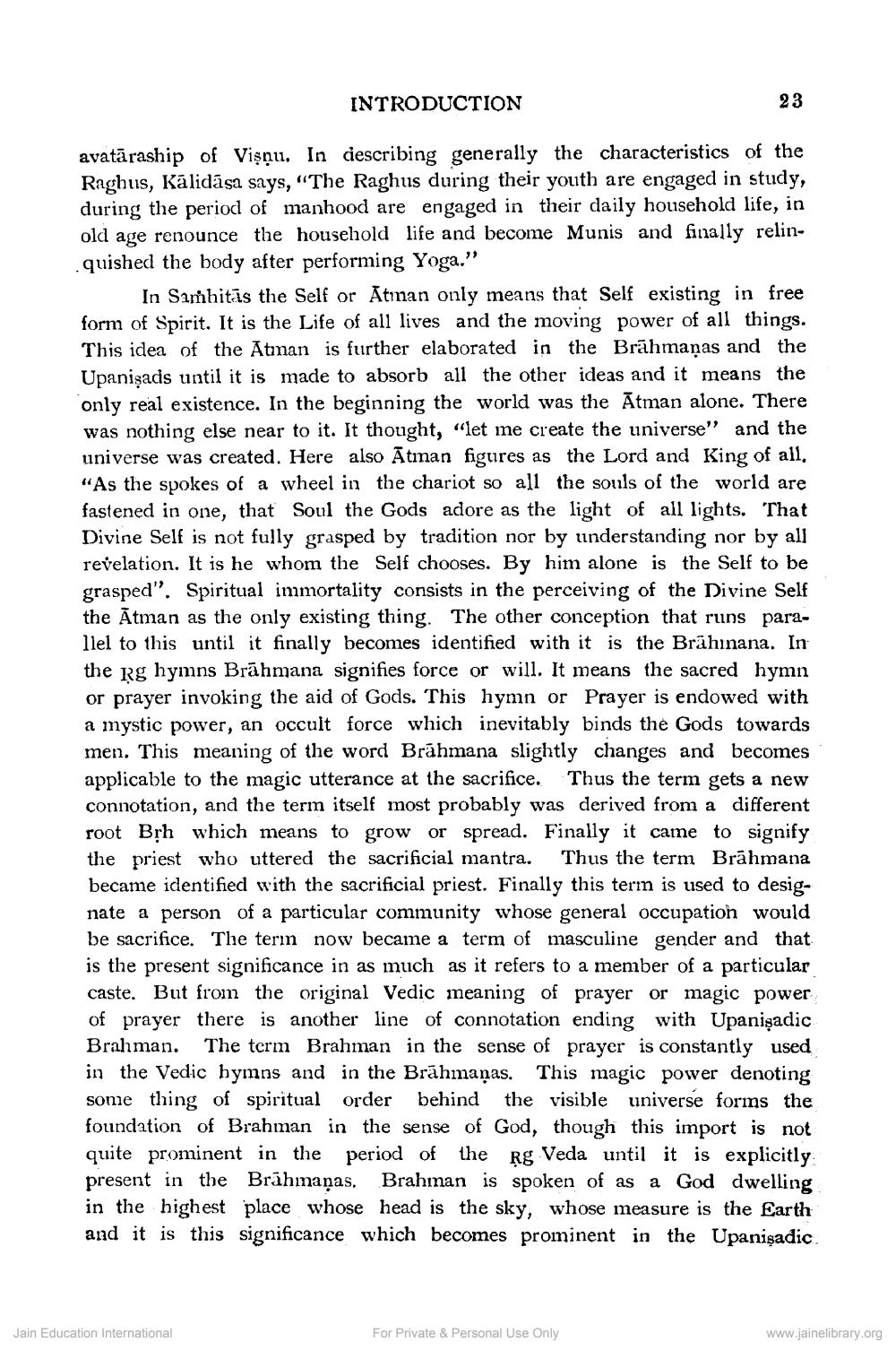________________
INTRODUCTION
23
avatāraship of Vişnu. In describing generally the characteristics of the Raghus, Kālidāsa says, "The Raghus during their youth are engaged in study, during the period of manhood are engaged in their daily household life, in old age renounce the household life and become Munis and finally relinquished the body after performing Yoga."
In Samhitās the Self or Atinan only means that Self existing in free m of Spirit. It is the Life of all lives and the moving power of all things. This idea of the Atinan is further elaborated in the Brāhmanas and the Upanişads until it is made to absorb all the other ideas and it means the only real existence. In the beginning the world was the Atman alone. There was nothing else near to it. It thought, "let me create the universe" and the universe was created. Here also Ātman figures as the Lord and King of all, “As the spokes of a wheel in the chariot so all the souls of the world are fastened in one, that Soul the Gods adore as the light of all lights. That Divine Self is not fully grasped by tradition nor by understanding nor by all revelation. It is he whom the Self chooses. By him alone is the Self to be grasped". Spiritual immortality consists in the perceiving of the Divine Self the Ātman as the only existing thing. The other conception that runs parallel to this until it finally becomes identified with it is the Brāhinana. In the Rg hymns Brāhmana signifies force or will. It means the sacred hymn or prayer invoking the aid of Gods. This hymn or Prayer is endowed with a mystic power, an occult force which inevitably binds the Gods towards men. This meaning of the word Brāhmana slightly changes and becomes applicable to the magic utterance at the sacrifice. Thus the term gets a new connotation, and the term itself most probably was derived from a different root Bịh which means to grow or spread. Finally it came to signify the priest who uttered the sacrificial mantra. Thus the term Brāhmana became identified with the sacrificial priest. Finally this terın is used to designate a person of a particular community whose general occupation would be sacrifice. The terın now became a term of masculine gender and that is the present significance in as much as it refers to a member of a particular caste. But from the original Vedic meaning of prayer or magic power of prayer there is another line of connotation ending with Upanişadic Brahman. The term Brahman in the sense of prayer is constantly used in the Vedic hymns and in the Brāhmaṇas. This magic power denoting some thing of spiritual order behind the visible universe forms the foundation of Brahman in the sense of God, though this import is not quite prominent in the period of the Rg Veda until it is explicitly present in the Brāhmaṇas. Brahman is spoken of as a God dwelling in the highest place whose head is the sky, whose measure is the Earth and it is this significance which becomes prominent in the Upanigadic.
Jain Education International
For Private & Personal Use Only
www.jainelibrary.org




